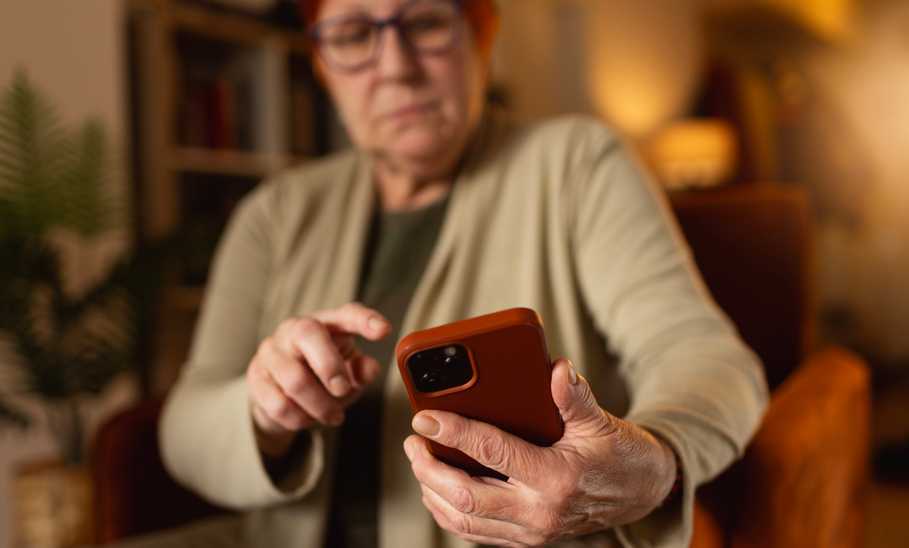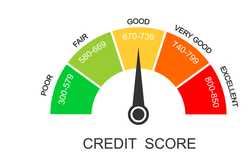Most Common Paypal Scams And How To Spot Them


Our evaluations and opinions are not influenced by our advertising relationships, but we may earn a commission from our partners’ links. This content is created by TIME Stamped, under TIME’s direction and produced in accordance with TIME’s editorial guidelines and overseen by TIME’s editorial staff. Learn more about it.
Payment apps such as PayPal can be a convenient way to send and receive money online or through an app. Regrettably, these apps are also an easy way for scammers and fraudsters to try to steal your money or identity. The good news is that you can avoid many scams if you know what to look for. Here's what you should know.
PayPal scams are popular with fraudsters, who use several strategies to take your money or access your personal and financial details. According to PayPal, here are the most common scams to watch out for.
PayPal phishing scams target consumers by sending emails or text messages that appear to come from PayPal asking for personal and financial information. Scammers use the information to access your account, open new accounts, or steal your identity.
PayPal says that the likelihood you'll receive a fake message is growing dramatically. To avoid falling victim to one, never reply to a suspicious email or open links, download attachments, or call any phone number appearing in the message. Forward the email to phishing@paypal.com, then delete it.
PayPal invoice scams try to trick you into sending money or divulging personal details. These scams can take several forms. For example, you might receive:
To avoid these scams, never pay suspicious invoices or money requests or send money to a cryptocurrency wallet noted in an invoice or money request. To check on the invoice if you’re not sure, go to PayPal's website and call the official customer service phone number provided there. You should only speak to PayPal when you initiate the call.
With this scam, a fraudster sends an email notifying you that you've won, inherited, or otherwise been awarded a large amount of money. The only catch is that you'll need to send a small amount via PayPal to cover the cost of taxes, legal documents, or transaction fees. It’s a con. Once you send the money, you’ll never hear from the scammer again or receive the promised funds. To avoid this scam, never send money to someone you don't know.
Shipping scams take various forms. Generally they involve a buyer of something that you’re selling fooling you into sending their package to a different address or paying to use their preferred courier.
In one common scam, the buyer offers to send a prepaid shipping label, which reroutes the package to a different address. The buyer can then claim they never received the item and demand a refund. And you're not protected by PayPal's seller protection policy because you sent the item to a different address. To avoid this scam, ship only to the buyer's address on the transaction details page.
Scammers often use disasters to trick unsuspecting people into donating to fake charities. These scams typically happen when there's a tragedy in the news, such as a refugee crisis, terrorist attack, or natural disaster. Before donating, confirm a charity is legitimate by visiting Charity Navigator, Charity Watch, or the BBB's Give.org. Then contact the charity directly instead of responding to the donation request.
With this scam, a customer overpays for their order and asks you to wire them the difference. The scammer may use a check that bounces or a stolen credit card to pay you. When the legitimate account holder reports the unauthorized activity, the money can be withdrawn from your account, leaving you without your payment, shipping costs, and the money you wired to the fraudster, plus the item you shipped. To avoid this scam, never wire money to someone you don't know, and consider canceling an order if a buyer overpays and asks you to send the difference.
PayPal scams work differently, depending on the goal of the scam. Many PayPal scams are phishing scams that try to trick you into entering personal and financial details so the scammer can access your account or steal your identity.
If you’re a seller who uses PayPal, watch out for shipping scams. As noted above, a scammer might send you a prepaid label to cover the shipping charges, perhaps with an explanation that they get labels at a discounted price. You'll have no control over the package's destination when you use the label. If you don't ship the item to the buyer's address on the transaction details page, the transaction won't be covered by PayPal's seller protection policy.
PayPal is considered a safe way to pay online, but there are numerous ways to get scammed. Fortunately, you can reduce the likelihood of falling victim to a scam by taking the following steps.
Don't click on links or open any attachments sent to you, even if they look legitimate. Instead, log into your account via the PayPal app or paypal.com. Forward suspicious emails to phishing@paypal.com.
Scammers often try to make you do something right away before you have time to consider the request's legitimacy.
The verification process confirms the user is an authorized account holder with a valid linked credit card or bank account. Verified users are less likely to be scammers.
Don't pay suspicious money requests you receive or call phone numbers or click on links included in the request. Report the message to PayPal, then delete it.
For example, if a customer "accidentally" sends a larger amount than needed for the transaction, don't issue a refund through a different platform. Instead, cancel the transaction and start over.
If you're a seller, pick the shipping method and stick to it. That way, you can control the delivery and avoid being duped by fake shipping labels or rerouted packages.
If a buyer asks you to ship to a different address, cancel the transaction so they can make the purchase with the new address. This helps you meet the requirements for PayPal's seller protection program.
Don't trust phone numbers included in emails, and avoid calling numbers that pop up in Google results, as these can be bogus. Go to the PayPal website and use the number listed there. Also, know that official PayPal messages will always address you by name.
Scammers may try to get malware on your computer, so using up-to-date antivirus software is essential.
Even if you think you’ve taken sufficient measures to prevent fraud, it never hurts to have some extra eyes on your account activity. A good ID monitoring service can help you to sniff out any suspicious activity by observing your transactions.
Identity Guard specializes in locating and neutralizing fraud. Plans range from $6.67 to $19.99. It checks the dark web, consults data breach notifications, and keeps tabs on any high-risk transactions. More premium versions will also monitor your bank account, social media, and much more.
Alternatively, you can link your PayPal account to an app called Albert. This helps you to keep track of your finances—even helping you to save money by analyzing your spending habits. But it also offers “Protect,” a 24/7 monitor that alerts you to potential threats as it finds them. Protect is part of Albert’s Genius subscription. Albert costs range from $9.99 to $19.99 per month.
 |  | |
|---|---|---|
| Monthly fee | $6.67 to $19.99 | $14.99 |
PayPal is considered a safe way to pay online. All transactions are protected by advanced data encryption and sensitive financial details such as credit card and bank account information are never shared between buyers and sellers. Furthermore, only a username and password are required to process a transaction: You don't have to enter your bank account or credit card details. PayPal offers 24/7 fraud monitoring and sends automatic alerts about suspicious activity.
PayPal says it monitors every transaction 24/7 to help prevent fraud, email phishing, and identity theft. The company’s buyer protection reimburses buyers if an item they've bought doesn't arrive or match the seller's description. Seller protection, meanwhile, safeguards sellers against potential losses due to chargebacks, disputes, payment reversals, fraudulent claims, and unauthorized transactions. PayPal won’t protect you under any circumstances, however. If, for example, you are tricked into shipping to a different address, sending a donation, or delivering the item in person, you won’t be covered by PayPal’s seller protection program. The terms and conditions can be viewed here.
Over four in ten (41%) of all fraud attempts were made through text or email in 2022, which is the most recent data available. Because phishing scams are so prolific, knowing how to identify fake messages is essential. According to PayPal, here are some red flags:
Remember, if you receive a suspicious email, don't click on any links or download attachments. Forward the entire email to phishing@paypal.com and then delete it.
If you receive a suspicious email, do not click on any of its links or download attachments. Instead, forward the entire email to phishing@paypal.com. Don't alter the subject line or forward the message as an attachment. After you forward the email, delete it from your inbox. Similarly, if you find a suspicious website, copy the site's address and paste it into an email message addressed to phishing@paypal.com.
You can also log into your PayPal account, go to the Resolution Center, and click "Report a Problem."
The Craigslist PayPal phishing scam works like this:
PayPal's seller protection doesn't apply to items picked up in person (and Craigslist doesn't back any transaction). So, if you're selling an item on Craigslist to someone local, make the exchange in a safe, public place, such as in front of a police station, and collect the payment in cash.
A PayPal chargeback scam happens when a buyer initiates a chargeback with PayPal, their credit card company, or bank, claiming there's a problem with the goods or services they purchased through PayPal. The fraudster may claim they never received the item, or that it didn’t match the seller's description. The scammer may also claim they didn't authorize the transaction.
Here are a few ways to avoid PayPal chargeback fraud:
The information presented here is created by TIME Stamped and overseen by TIME editorial staff. To learn more, see our About Us page.



